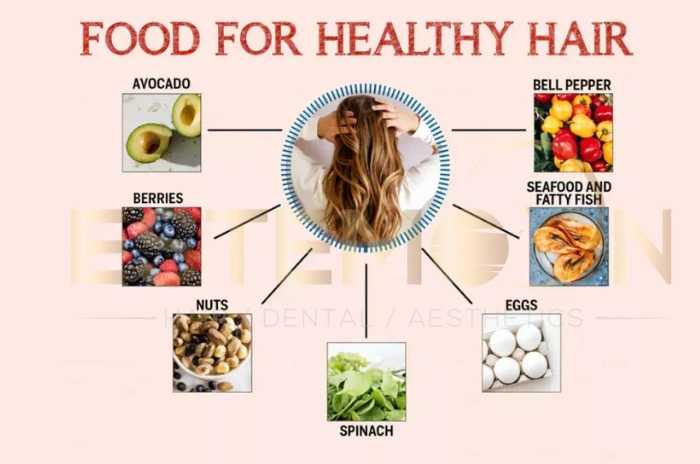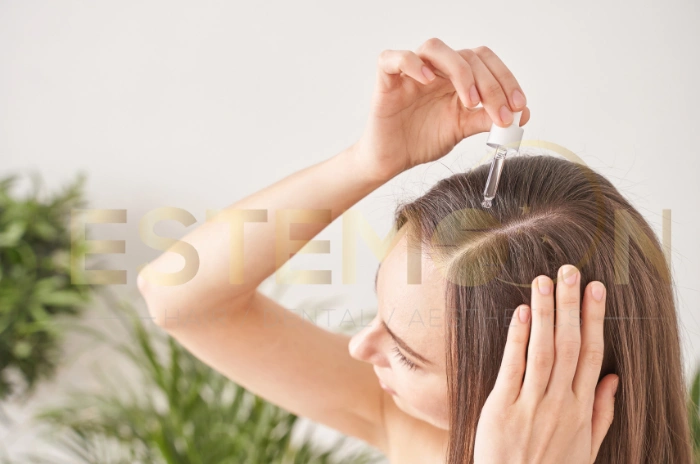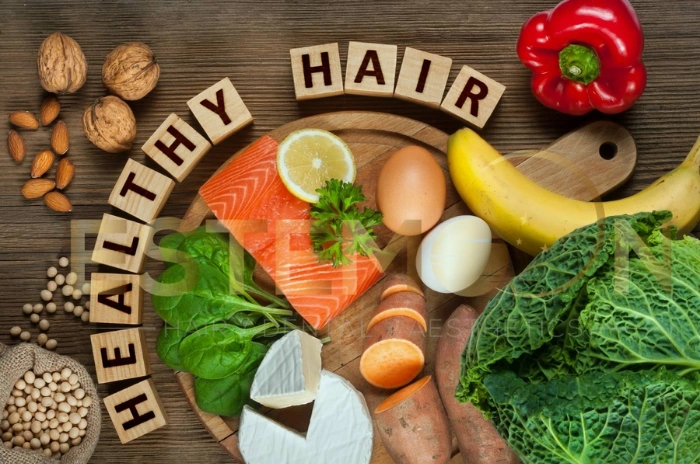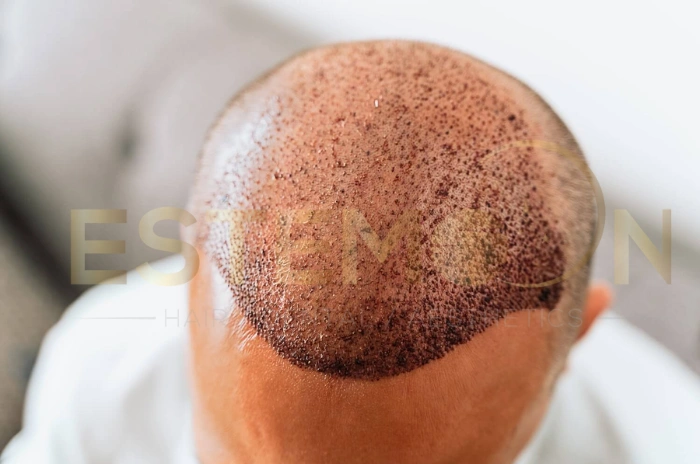Hair growth is a natural process that can be significantly enhanced through simple yet effective lifestyle changes to help hair grow naturally. Many people struggle with slow hair growth, thinning, or hair loss, often turning to expensive treatments without realizing that fundamental lifestyle modifications can make a remarkable difference. Understanding how daily habits, nutrition, stress management, and proper care routines impact hair health is essential for anyone seeking to achieve stronger, longer, and healthier hair naturally.
The journey to natural hair growth begins with recognizing that hair follicles are living structures that respond to our overall health and well-being. When we nourish our bodies properly, manage stress effectively, and adopt healthy hair habits, we create an optimal environment for hair follicles to thrive. This comprehensive approach not only promotes faster hair growth but also improves hair quality, reduces breakage, and prevents premature hair loss.

Balanced Nutrition for Hair Growth
Protein-rich foods & keratin synthesis
Hair is primarily composed of keratin, a protein that requires adequate dietary protein for proper synthesis. Foods that promote hair growth include lean meats, fish, eggs, legumes, and dairy products, which provide essential amino acids necessary for hair follicle function. Without sufficient protein intake, hair can become thin, brittle, and grow more slowly than its natural potential.
Incorporating biotin for hair growth through natural sources like eggs, nuts, and seeds supports the protein synthesis process. These foods contain cysteine and methionine, sulfur-containing amino acids that are particularly important for keratin production. Plant-based protein sources such as quinoa, lentils, and chickpeas also contribute significantly to meeting daily protein requirements for optimal hair health.
Vitamins and minerals
Nutrients for hair growth extend beyond protein to include specific vitamins and minerals that support follicle function. Iron deficiency is one of the leading causes of hair loss, making iron-rich foods like spinach, red meat, and fortified cereals crucial for maintaining healthy hair growth cycles. Vitamin D, zinc, and vitamin C work synergistically to support hair follicle health and collagen production.
B-complex vitamins, particularly biotin, folate, and B12, play essential roles in cellular metabolism and DNA synthesis within hair follicles. These vitamins can be found in whole grains, leafy greens, and animal products. Vitamin E acts as an antioxidant, protecting hair follicles from oxidative stress that can impair growth and lead to premature aging of hair.
Importance of omega‑3 fatty acids and hydration
Omega-3 fatty acids found in fish, walnuts, and flaxseeds provide anti-inflammatory benefits that support scalp health and hair growth. These healthy fats help maintain the hair’s natural shine and prevent dryness that can lead to breakage. Regular consumption of omega-3 rich foods also improves blood circulation to the scalp, ensuring that hair follicles receive adequate nutrients.
Hydration for hair growth is equally important, as dehydrated hair becomes brittle and prone to breakage. Adequate water intake supports the transport of nutrients to hair follicles and helps maintain the scalp’s natural moisture balance. This internal hydration works in conjunction with external moisturizing practices to create optimal conditions for hair growth.
Hydrate and Support Scalp Moisture
Drinking enough water daily
Maintaining proper hydration is fundamental for natural hair growth tips that actually work. The recommended daily water intake of 8-10 glasses helps maintain cellular function within hair follicles and supports the scalp’s natural oil production. Dehydration can lead to a dry, flaky scalp that impedes healthy hair growth and may contribute to increased hair fall.
Water also helps flush toxins from the body that could potentially interfere with hair growth processes. When the body is well-hydrated, blood circulation improves, ensuring that hair follicles receive the oxygen and nutrients they need to produce strong, healthy hair strands.
Foods that enhance hydration (cucumber, watermelon, citrus)
Best foods for hair growth include water-rich fruits and vegetables that contribute to overall hydration while providing essential vitamins and minerals. Cucumber contains silica, which strengthens hair and nails, while watermelon provides vitamins A and C along with high water content. These foods help maintain internal hydration levels that support scalp health.
Citrus fruits like oranges, lemons, and grapefruits offer vitamin C, which aids in iron absorption and collagen production. The high water content in these fruits also contributes to overall hydration while providing antioxidants that protect hair follicles from environmental damage.
Stress Management & Mental Wellness
How cortisol affects the hair growth cycle
Chronic stress elevates cortisol levels, which can significantly impact the hair growth cycle and answer the question “does stress cause hair loss” with a definitive yes. Elevated cortisol pushes hair follicles into the resting phase prematurely, leading to increased hair shedding and slower regrowth. Understanding this connection is crucial for anyone experiencing unexplained hair loss or thinning.
Stress-induced hair loss, known as telogen effluvium, can occur 2-3 months after a stressful event, making it important to address stress management as a preventive measure. The good news is that stress-related hair loss is typically reversible once stress levels are managed effectively and cortisol returns to normal levels.
Practices like yoga, meditation, deep breathing & hobbies
Implementing stress-reduction techniques is essential for maintaining healthy hair habits and supporting natural growth. Yoga combines physical movement with mindfulness, helping to reduce cortisol levels while improving blood circulation to the scalp. Regular yoga practice can also improve sleep quality, which further supports hair health.
Meditation and deep breathing exercises activate the parasympathetic nervous system, promoting relaxation and reducing stress hormones that can interfere with hair growth. Engaging in enjoyable hobbies provides mental stimulation and stress relief, creating a positive environment for hair follicles to thrive.
Prioritize Quality Sleep
Role of sleep in growth hormone release and scalp repair
Quality sleep is when the body releases growth hormones that are essential for hair follicle regeneration and repair. During deep sleep phases, blood flow to the scalp increases, delivering nutrients and oxygen to hair follicles while removing waste products that could impede growth. This natural repair process is crucial for maintaining healthy hair growth cycles.
Sleep deprivation can disrupt hormone production, including those that regulate hair growth, leading to slower growth rates and increased hair loss. Establishing consistent sleep patterns supports the body’s natural circadian rhythms, which influence hair follicle cycling and overall hair health.
Tips to improve sleep hygiene for hair health
Creating an optimal sleep environment involves maintaining a cool, dark, and quiet bedroom that promotes restful sleep. Avoiding screens for at least an hour before bedtime helps regulate melatonin production, which is important for both sleep quality and hair growth. Using silk or satin pillowcases can also reduce hair friction and breakage during sleep.
Establishing a consistent bedtime routine signals to the body that it’s time to rest and repair. This might include gentle stretching, reading, or practicing relaxation techniques that help transition from daily stress to restorative sleep.

Scalp Stimulation Techniques
Benefits of daily scalp massage (oils & circulation boost)
Scalp massage benefits hair growth by increasing blood circulation to hair follicles, ensuring they receive adequate nutrients and oxygen for optimal function. Daily massage sessions of just 5-10 minutes can stimulate the scalp and promote hair growth while providing stress relief benefits. The mechanical stimulation of massage also helps distribute natural oils along the hair shaft.
Regular scalp massage can help reduce hair fall naturally by strengthening hair roots and improving follicle health. The increased circulation also helps remove buildup of dead skin cells and excess sebum that could clog follicles and impede growth.
Using rosemary, coconut, castor or other nourishing oils
Rosemary oil hair growth benefits have been scientifically studied, with research showing it can be as effective as conventional treatments for promoting hair growth. Natural oils for hair growth like coconut oil provide deep moisturization and antimicrobial properties that support scalp health. These oils can be warmed slightly and massaged into the scalp for enhanced absorption.
Castor oil contains ricinoleic acid, which has anti-inflammatory properties and may help improve circulation to hair follicles. Other beneficial oils include jojoba oil, which closely mimics the scalp’s natural sebum, and argan oil, which provides vitamin E and essential fatty acids for hair nourishment.
Protect Hair from Damage
Avoid tight hairstyles and traction alopecia
Understanding how to stop hair breakage begins with avoiding hairstyles that place excessive tension on hair follicles. Tight ponytails, braids, and buns can cause traction alopecia, a form of hair loss that occurs when constant pulling damages hair follicles. Alternating hairstyles and avoiding excessive tension helps prevent this type of damage.
When styling hair, use gentle techniques and avoid pulling or tugging on strands. Loose braids, soft hair ties, and protective styles that don’t stress the hairline are better choices for maintaining hair health while still achieving desired looks.
Minimizing heat styling, chemical treatments, and sun exposure
Excessive heat from styling tools can damage the hair cuticle and lead to dryness, breakage, and split ends. When heat styling is necessary, always use a heat protectant product and keep temperatures below 350°F. Air-drying whenever possible helps maintain hair’s natural moisture and prevents heat damage.
Chemical treatments like perms, relaxers, and frequent coloring can weaken hair structure and lead to breakage. Spacing these treatments appropriately and using deep conditioning treatments can help minimize damage while maintaining desired styles.
Gentle washing & using sulfate-free shampoo
Sulfate-free shampoo is gentler on hair and scalp, helping to maintain natural oils while still cleansing effectively. Sulfates can strip away natural moisture, leading to dryness and potential irritation that may impede hair growth. Choosing products with mild cleansing agents helps maintain scalp health.
Washing frequency should be adjusted based on hair type and scalp condition. Over-washing can strip natural oils, while under-washing may lead to buildup that clogs follicles. Finding the right balance helps maintain optimal scalp conditions for hair growth.
Avoid Harmful Lifestyle Habits
Effects of smoking and excessive alcohol on hair health
Smoking restricts blood flow to hair follicles, reducing the delivery of essential nutrients and oxygen needed for healthy hair growth. The toxins in cigarettes can also damage hair follicles and accelerate hair aging. Quit smoking hair growth benefits become apparent within months as circulation improves and toxin levels decrease.
Excessive alcohol consumption can interfere with nutrient absorption and hormone production, both of which are crucial for hair health. Alcohol also dehydrates the body, which can lead to dry, brittle hair that’s prone to breakage.
Environmental factors (pollution, humidity, dry air)
Environmental pollutants can accumulate on the scalp and hair, potentially clogging follicles and causing inflammation that impedes growth. Regular cleansing and using protective products when exposed to high pollution levels helps minimize these effects. UV radiation from sun exposure can also damage hair proteins and fade color.
Extreme weather conditions, whether very humid or very dry, can affect hair health. Protecting hair with appropriate products and styling techniques helps maintain moisture balance regardless of environmental conditions.
Using humidifiers in dry conditions during winter
Dry indoor air during winter months can lead to static, breakage, and scalp dryness. Using a humidifier helps maintain optimal moisture levels in the air, which benefits both hair and scalp health. This is particularly important in heated indoor environments where humidity levels can drop significantly.
Maintaining proper humidity levels helps prevent the hair cuticle from lifting, which can lead to tangles and breakage. This simple environmental modification can make a significant difference in hair health during dry seasons.

Eat a Hair-Growth-Friendly Diet
Protein-Rich Foods for Stronger Hair
Building stronger hair requires consistent intake of high-quality proteins that provide all essential amino acids. Lean proteins like chicken, turkey, fish, and plant-based options like quinoa and hemp seeds offer complete amino acid profiles necessary for keratin synthesis. These best foods for hair growth should be included in daily meals to support ongoing hair production.
Eggs are particularly beneficial as they contain both protein and biotin, making them a powerful combination for hair health. The protein in eggs is highly bioavailable, meaning the body can easily use it for hair follicle function and growth.
Essential Vitamins & Minerals (Biotin, Iron, Zinc)
Iron deficiency is one of the most common nutritional causes of hair loss, making iron-rich foods essential for anyone looking to prevent hair loss naturally. Red meat, spinach, lentils, and fortified cereals provide readily absorbable iron that supports healthy hair growth cycles. Combining iron-rich foods with vitamin C sources enhances absorption.
Zinc plays a crucial role in hair tissue growth and repair, while also helping to keep oil glands around hair follicles working properly. Foods like oysters, pumpkin seeds, and chickpeas provide adequate zinc for hair health maintenance.
| Nutrient | Function for Hair Health | Best Food Sources | Daily Recommended Amount |
|---|---|---|---|
| Biotin | Supports keratin production and hair strength | Eggs, nuts, seeds, sweet potatoes | 30-35 mcg |
| Iron | Carries oxygen to hair follicles, prevents hair loss | Red meat, spinach, lentils, fortified cereals | 18 mg (women), 8 mg (men) |
| Zinc | Hair tissue growth and repair, oil gland function | Oysters, pumpkin seeds, chickpeas, meat | 8-11 mg |
| Vitamin D | Hair follicle health and cycling | Fatty fish, fortified milk, sunlight exposure | 600-800 IU |
| Protein | Building blocks for hair structure (keratin) | Lean meats, fish, eggs, legumes | 0.8g per kg body weight |
| Omega-3 | Scalp health, anti-inflammatory properties | Salmon, walnuts, flaxseeds, chia seeds | 1-2g daily |
| Vitamin C | Iron absorption, collagen production | Citrus fruits, berries, bell peppers | 75-90 mg |
Hydration & Healthy Fats for Scalp Health
Omega-3 fatty acids from sources like salmon, walnuts, and chia seeds provide anti-inflammatory benefits that support scalp health and may help with conditions like dandruff or scalp irritation. These healthy fats also help maintain hair’s natural shine and flexibility, reducing the likelihood of breakage.
Adequate hydration from both water intake and water-rich foods helps maintain the scalp’s natural moisture barrier and supports the transport of nutrients to hair follicles throughout the body.
Improve Your Hair Care Routine
Gentle Washing & Conditioning Tips
Establishing best daily habits for hair growth includes gentle washing techniques that clean without damaging hair or irritating the scalp. Use lukewarm water rather than hot water, which can strip natural oils and cause dryness. Focus shampoo application on the scalp rather than the hair lengths to avoid unnecessary drying.
Conditioning should focus on the mid-lengths and ends of hair, where natural oils from the scalp don’t reach as easily. Leave-in conditioners can provide ongoing moisture and protection between wash days, especially for those with dry or damaged hair.
Scalp Massages to Boost Blood Circulation
Incorporating daily scalp massages into your routine can significantly improve blood circulation and potentially accelerate hair growth. Use gentle circular motions with your fingertips, not nails, to stimulate the scalp without causing irritation. This practice can be done with or without oils, depending on personal preference and hair type.
The relaxation benefits of scalp massage also contribute to stress reduction, providing dual benefits for hair health. Even a few minutes of daily massage can make a noticeable difference in scalp health and hair growth over time.
Avoid Heat Styling & Chemical Damage
Minimizing heat styling and chemical processing helps preserve hair’s natural structure and prevents the weakening that can lead to breakage. When heat styling is necessary, using protective products and lower temperatures helps minimize damage while still achieving desired results.
Chemical treatments should be spaced appropriately to allow hair to recover between processes. Deep conditioning treatments and protein masks can help repair damage and strengthen hair between chemical services.
Get Enough Sleep for Hair Regeneration
The Link Between Sleep & Hair Growth
During sleep, the body focuses energy on repair and regeneration processes, including hair growth. Growth hormone production peaks during deep sleep phases, directly influencing hair follicle activity and the hair growth cycle. Poor sleep quality or insufficient sleep can disrupt these natural processes.
The relationship between sleep and hair health extends beyond hormone production to include stress management and overall immune function, both of which influence hair growth and scalp health.
Best Sleep Practices for Hair Health
Creating a sleep environment that supports both rest and hair health involves using appropriate pillowcases, maintaining comfortable room temperature, and establishing consistent sleep schedules. Silk or satin pillowcases reduce friction that can cause hair breakage during sleep.
Avoiding caffeine and electronic screens before bedtime helps ensure quality sleep that supports hair regeneration. Regular sleep schedules help regulate the body’s natural circadian rhythms, which influence hair growth cycles.
FAQs About Lifestyle Changes to Help Hair Grow Naturally
What specific nutrients and foods should I include in my diet to support natural hair growth?
Focus on protein-rich foods like eggs, fish, and legumes, along with iron sources like spinach and red meat, biotin from nuts and seeds, omega-3 fatty acids from salmon and walnuts, and vitamin C from citrus fruits to support optimal hair growth.
How does managing stress and improving mental wellness impact the hair growth cycle?
Chronic stress elevates cortisol levels which can push hair follicles into a resting phase prematurely, leading to increased shedding and slower regrowth, making stress management through yoga, meditation, and relaxation techniques essential for healthy hair growth.
What role does adequate sleep play in healthy hair growth, and how can I improve my sleep for better hair?
Sleep is when growth hormones are released and scalp repair occurs, making 7-9 hours of quality sleep crucial for hair health; improve sleep by maintaining consistent bedtime routines, using silk pillowcases, and creating a cool, dark sleep environment.
Are there effective scalp stimulation techniques, such as massages, that can naturally encourage hair growth?
Daily 5-10 minute scalp massages using gentle circular motions can increase blood circulation to hair follicles, promote nutrient delivery, and stimulate growth; incorporating natural oils like rosemary or coconut oil can enhance these benefits.
What daily hair care habits should I adopt or avoid to protect my hair from damage and support natural growth?
Use sulfate-free shampoos, avoid tight hairstyles and excessive heat styling, protect hair from sun exposure, wash with lukewarm water, and focus conditioning on hair ends while keeping scalp clean but not over-washed.
How important is hydration for scalp moisture and overall hair health?
Proper hydration from drinking 8-10 glasses of water daily and eating water-rich foods like cucumber and watermelon maintains scalp moisture, supports nutrient transport to follicles, and prevents dryness that can lead to breakage.
Which common lifestyle habits can negatively affect hair health and potentially hinder natural growth?
Smoking restricts blood flow to follicles, excessive alcohol interferes with nutrient absorption, chronic stress elevates damaging cortisol levels, and poor sleep disrupts growth hormone production and follicle repair processes.
How often should I review my hair care routine to ensure it aligns with my natural hair growth goals?
Evaluate your hair care routine every 3-4 months to assess progress, adjust products based on seasonal changes or hair condition improvements, and modify techniques as your hair grows longer and potentially requires different care approaches.



